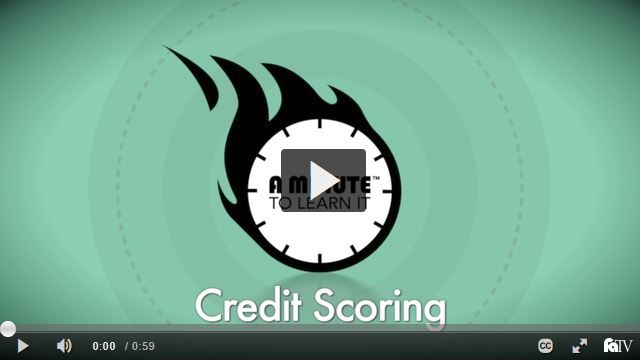Understanding Your Credit Score



Your credit score is an important financial factor in the world that we live in today. It is reviewed as you are buying a home or a car, or even sometimes when you apply for a job. It is important for you to build your credit and manage it in a healthy way. The first step is understanding your credit report and credit score, and learning ways to build a credit score that meets potential lenders’ demands.
Review Your Credit Report
A credit report is a detailed report that shows your credit history. In includes where you live, your employment history, debt history and credit inquires. You can access your credit report for free once a year from each of the three credit bureaus: Experian, Equifax and Transunion. Check your credit report online at www.annualcreditreport.com.
A credit report consists of:
- Payment history (35%) – paying bills consistently on time is the key.
- Amounts owed (30%) – total amount of debt. Keeping low or zero balances will help maintain a healthy credit score.
- Length of credit history (15%) – age of accounts, length of your oldest and newest account. The longer your record of positive credit the better.
- Credit mix (10%) – the types of accounts you have (credit cards, retail loans, car loans). Lenders tend to favor a variety of credit accounts as it shows you are a responsible borrower
- New Credit (10%) – credit inquires and recently opened accounts. This information stays on your credit report for 2 years.
Understand Your Credit Score
Credit is measured by FICO or the Vantage Score method. These two models are used by lenders to determine your ability to repay your debt. Both models have scores that range from 300-850 based off of your credit report. The higher the number, the healthier your credit is considered. Always strive to keep your credit score higher than it currently is!
Tips
- Review your credit report once a year to ensure accuracy. It is important to monitor your credit report to understand what is affecting your score and recognize any errors – for example, an account that may not be yours, or an account that you have paid but is showing nonpayment.
- Pay your bills on time or before the due date. It may help to set reminders on your phone or calendar. You can also consider enrolling in automatic payments through your loan or credit card providers, so your payment is automatically debited from your bank account.
- Learn more about how to build your credit.



